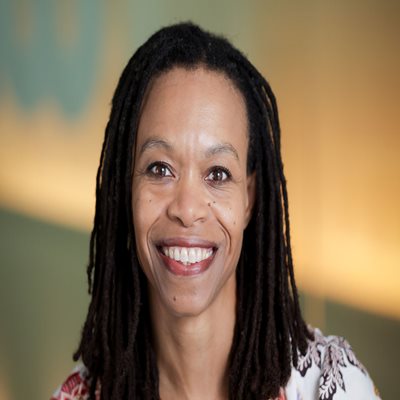Mental Health Equity on a Global Scale: An Interview with Dr. Pamela Collins

By Fátima Reynolds
There are more universals in the global fight to achieve mental health equity than there are differences, according to Dr. Pamela Collins, the Director of the Consortium for Global Mental Health at the University of Washington in Seattle.
In this role, she is focused on designing and testing culturally appropriate interventions in communities around the world. The Consortium works to integrate mental health services across various domains including schools, faith-based settings, maternal and child health care, primary care, and HIV treatment. In her transnational work, Dr. Collins observes that despite the country-to-country variances in cultural, historical, economic, governance, and other factors, there are commonalities in efforts to achieve equity.
“There are similarities around the world with respect to who gets access to mental health services. Of course, people who are more highly resourced get access to higher quality services,” said Collins.
According to Collins, it is also common across different contexts for people to be reluctant to seek care even when exposed to similar discriminatory and racist harms in institutional settings—including healthcare settings.
Collins stresses the importance of “...understanding the social history that people bring to the care setting, structuring care to be sensitive, trying to reduce enacted discrimination or stigma, and creating systems that are more welcoming, anti-racist and inclusive.”
HIV and Mental Health Care
According to Collins, healthcare professionals in HIV and mental health services around the world often mistreat and pose a challenge to those seeking care. Most HIV infections globally occur in key populations: men who have sex with men, female sex workers, transgender, and incarcerated people. Collins also includes those with serious mental health disorders in these groups.
“These groups at the greatest risk are often the most marginalized in their communities. These are folks in danger of discriminatory legislation or in the workplace, because of their identities...those are shared characteristics in many places.” said Collins. She added that HIV remains a stigmatized condition and providers should take these social aspects into consideration.
Collins works with the International Training Center for Health (ITECH) to implement PEPFAR, a health-system strengthening intervention to deliver HIV prevention and treatment services. Through this work, ITECH has begun integrating mental health services into HIV programming and building capacity around mental health care among HIV care providers.
"In Ukraine, for example, we’re helping providers understand trauma they see in people coming in for care in a country that is at war. How to recognize those symptoms and experiences, and when to refer for more intensive services,” said Collins.
In her work as associate director of the Behavioral Research Center for HIV (BIRCH), Collins bridges efforts between the Consortium, ITECH and scientific research—chiefly, how to develop research on the integration of mental health with HIV interventions, incorporating the perspective of practitioners and those living with HIV.
Technology and Mental Health
Technology and telemedicine are promising for retaining people in HIV care and for treatment adherence, particularly distance therapy or cellphones, said Collins.
One example is using structured two-way texting between people receiving care and nurses in a clinic to reduce the number of in-person visits.
Collins works with the World Health Organization and UNICEF through their Ensuring Quality in Psychological Support (EQUIP) program. EQUIP's program in Kenya is proof of this emergent flexibility and innovation in mental health services.
EQUIP had planned to train community health volunteers to deliver culturally congruent, trauma-focused cognitive behavioral therapy (CBT) to youth.
However, due to the COVID-19 pandemic, these training visits were no longer possible. The team found a way to train by leveraging low-bandwidth technology, the WhatsApp chat application, and telephone calls. Not only did the participants find the virtual training more convenient than the originally planned in-person training, but also their patients’ health status continued to improve.
Barriers to Care
According to Collins, there have been worldwide increases in incidence and prevalence of substance use disorders (SUD) and overdose deaths in the last decade, with over half occurring in North America. Persistent inequities between countries also exist.
According to Collins, only 10% of people recognized as having an SUD will receive minimally adequate care in high-income countries. In low-to middle-income countries, that number is closer to 1%.
Collins also says the data for people recognized as having depression is similar. Only 22% will receive minimally adequate care in high-income countries, and only 3-4% in low- to-middle- income countries.
“Within each country, the work is to determine where are the barriers to access,” said Collins, “Are they systems-level or [are they] barriers in terms of how different groups of people think about mental health?”
One barrier could be attribution, a belief that a doctor or health facility is the appropriate avenue for treatment versus clergy or healers. “When we talk about equity among different cultural groups, we must meet people where they are with their conceptualizations. That is true everywhere,” said Collins.
Workforce Shortages
Commonalities around barriers to care, however, remain complex. For example, the systemic issue of health worker shortages is uniquely impacted by the high-/low-income country divide.
“Highly qualified health care providers in countries with fewer resources are often recruited to high income countries that need health workers. Especially now, post-COVID,” said Collins.
There is ultimately a cost to those low-income countries who are experiencing this “brain drain,” as Collins described it. However, she is hopeful that the pandemic has provided opportunities.
“What has occurred with COVID is we have seen a much more robust conversation around global health, as well as innovations,” she said.
